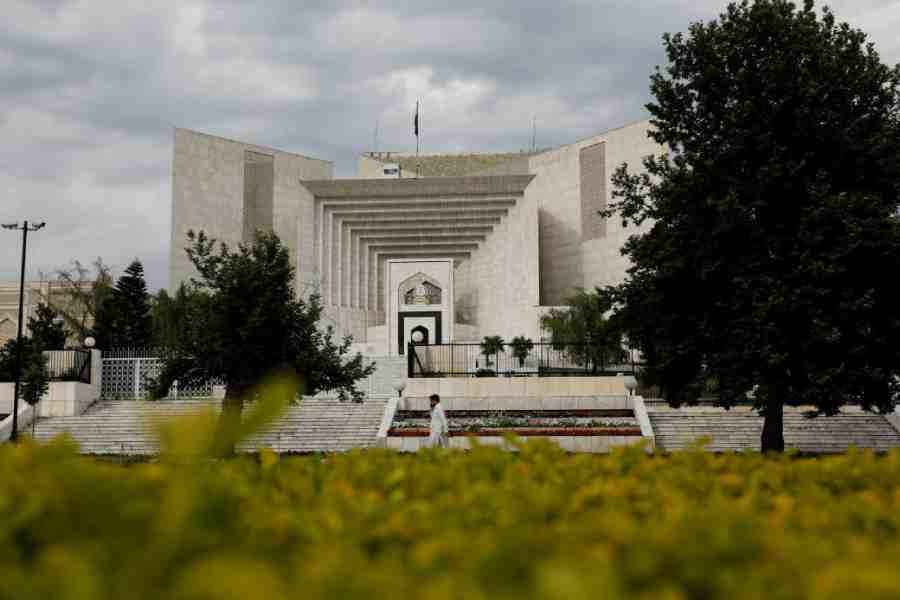Pakistan has a new caretaker set-up, with an interim prime minister and his cabinet. Pakistan has a new chief justice too. However, the political situation remains the same — it is embroiled in controversies leading to grave uncertainty. The Pakistan Tehreek-e-Insaf chairman and former prime minister, Imran Khan, is behind bars. The Pakistan Muslim League (Nawaz) has announced that the party supremo, Nawaz Sharif, will return on October 21. The Pakistan People’s Party has been asking why there is no level-playing field for political parties except for the PML(N). The Election Commission of Pakistan announced on Thursday that the upcoming general elections will take place in the last week of January 2024. But a question that everyone is asking is whether or not these elections would resolve any issue and restore the credibility of the democratic process, which has been gradually lost due to the way that our political parties have behaved in the past few years.
It is not just the political parties but also many institutions that have lost their credibility — especially the Supreme Court of Pakistan. In Pakistan, we almost always talk about the military establishment and its role in politics but we skip another establishment — the judicial establishment. In many ways, the judicial establishment gets away with far more because of the ‘aura’ that the superior judiciary maintains. But in recent years, the pretence of being ‘holier than thou’ has also worn off in many ways. We can go back decades to dissect the judiciary’s chequered role in Zulfikar Ali Bhutto’s ‘judicial murder’ or in the ‘doctrine of necessity’ to give legal cover to extraconstitutional acts. So the history of the judiciary is not something that can be written in golden words to begin with. However, what started with the former chief justice, Iftikhar Chaudhry, after his restoration during the period when the PPP was in power, has continued to haunt the superior judiciary save for a couple of honourable exceptions. Saqib Nisar and the recently retired chief justice, Umar Ata Bandial, have made a mockery of the entire judicial system in many ways as per legal experts. It was Nisar’s court that gave full legal cover to judgments in order to ‘persecute’ the PML(N) so that the PTI could come to power. This is why his name is brought up frequently by the PML(N); Nawaz Sharif also accuses him of committing unforgivable crimes. As for the Bandial court, the polarisation that we witnessed among the judges of the Supreme Court was equally robust. For example, the Bandial court treated the PTI and Imran Khan with kid-gloves while going all guns blazing against the PML(N) and other political parties, something that many legal experts have noted with sadness. The perception that the Bandial court favoured one party or leader over the others was so glaringly obvious that it became a joke: every time a bench was formed in a political case, legal experts and even the public could predict what the verdict would be. The term, ‘like-minded judges/benches’, became quite common due to this reason.
Some say ‘like-minded judges’ should have been taken to task for their absurd yet consequential judgments like the reinterpretation of Article 63A, which changed the political situation on the ground. Here’s a little recap of Article 63A, which pertains to the defection clause and was important especially during the vote of no-confidence in the Punjab assembly last year. Observers point out that the reinterpretation of Article 63A left a political party head with little authority. It changed the dynamics of Punjab politics as the verdict in the Article 63A case led to the reinterpretation of the Constitution by the Bandial court benefitting — you guessed it — the PTI. It is for this reason that when Bandial retired, not many in the legal fraternity shed any tears.
The new chief justice, Qazi Faez Isa, faced a presidential reference against him during the tenure of Imran Khan’s government. Despite that, the first thing that Isa did was constitute a full court to hear the petitions challenging the Supreme Court (Practice and Procedure) Act 2023, which limits the powers of the chief justice. And for the first time in history, Supreme Court proceedings were telecast live on our television screens. Many experts say that despite his visible differences with some of his fellow judges, Isa made a great gesture by constituting a full court in a contentious case about a law passed by Parliament that had faced a pre-emptive strike by the Bandial court. In many ways, Isa has restored the apex court’s lost credibility by being transparent and unbiased, unlike his predecessor. However, he faces many challenges and has a long way to go before the highest court’s credibility is fully restored through its judgements.
If a chief justice can try and restore the superior judiciary’s credibility, cannot the politicians do the same? One of the reasons that political observers are raising questions on the election’s credibility is that if a political party, the PTI, is not allowed to participate in one way or the other, it will make the elections not just controversial but also put its credibility in doubt. A new government elected through an election with poor credibility will not be able to resolve the political crisis. It is thus time to restore the legitimacy and the credibility of the democratic process in Pakistan.
Mehmal Sarfraz is a journalist based in Lahore; mehmal.s@gmail.com










